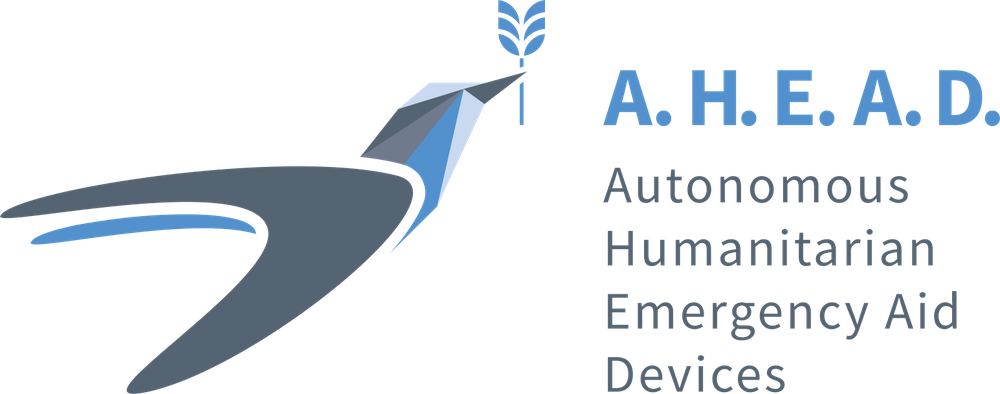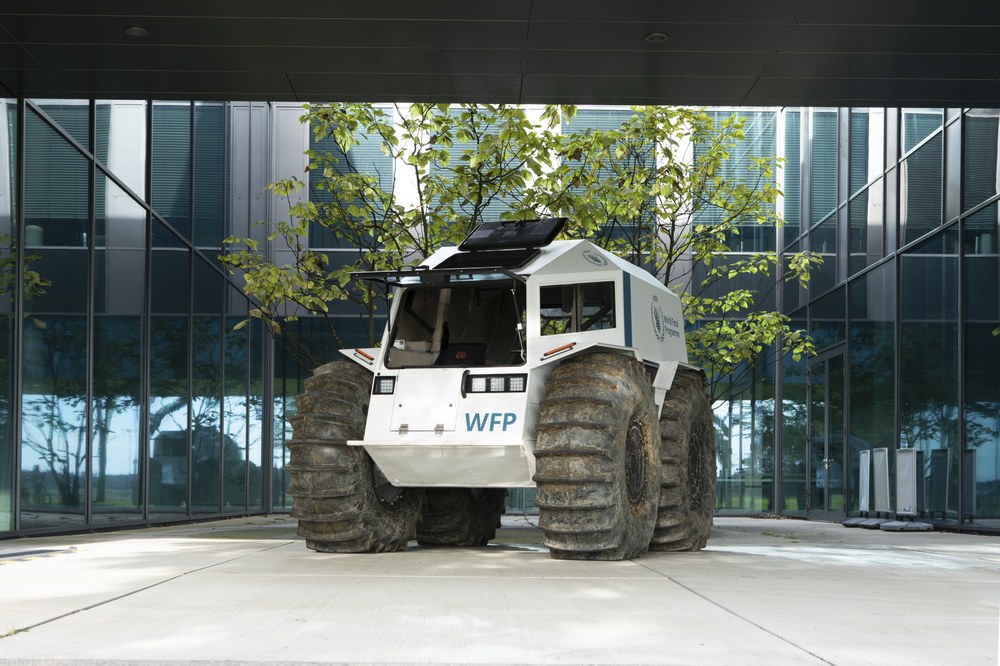AHEAD

The project AHEAD (Autonomous Humanitarian Emergency Aid Devices) has the vision to transport aid supplies safely and cost-efficiently to crisis regions using robot-controlled vehicles.
Runtime: | 2020-10-01 to 2022-12-31 |
Project partners: | |
Website: | |
Fields of application: | Teleoperation of vehicles for the transport of humanitarian goods |
Project details
The transport of humanitarian goods poses serious problems for NGOs. The drivers of aid transports are exposed to risks from muggings, animal attacks and diseases like malaria or Ebola. In addition, the affected regions often lack sufficient infrastructure for transport, for example in the rough and flood-prone areas of southern Sudan.
In the AHEAD project, special off-road vehicles will be teleoperated that can move in terrain that cannot be reached by boats or trucks only. These SHERP vehicles can also transport goods much more cost-effectively than would be possible by air transport. The United Nations World Food Programme (WFP) has already successfully deployed many of these SHERPs. In the AHEAD project, they will be equipped with several sensors for real-time monitoring of their surroundings and prepared for remote control. Using perceptual sensors, depth cameras and LIDAR systems, they will be able to detect their surroundings and make safety and emergency stops at any time.
The AHEAD consortium consists of technology partners and DLR institutes with many years of expertise in the fields of humanitarian aid, teleoperation, semi-autonomous driving, intermodal global telecommunications, environmental monitoring and situation analysis.



